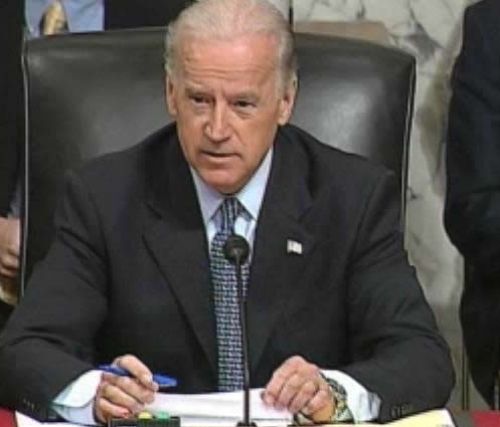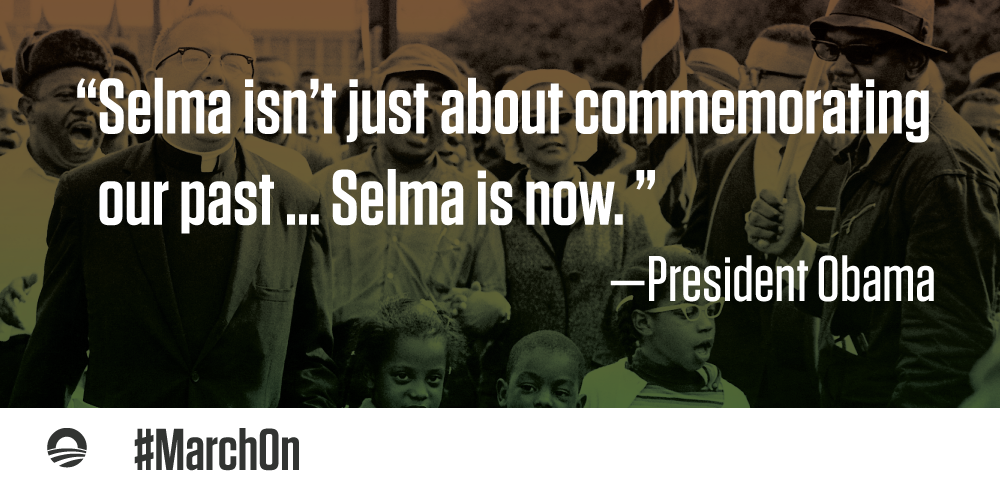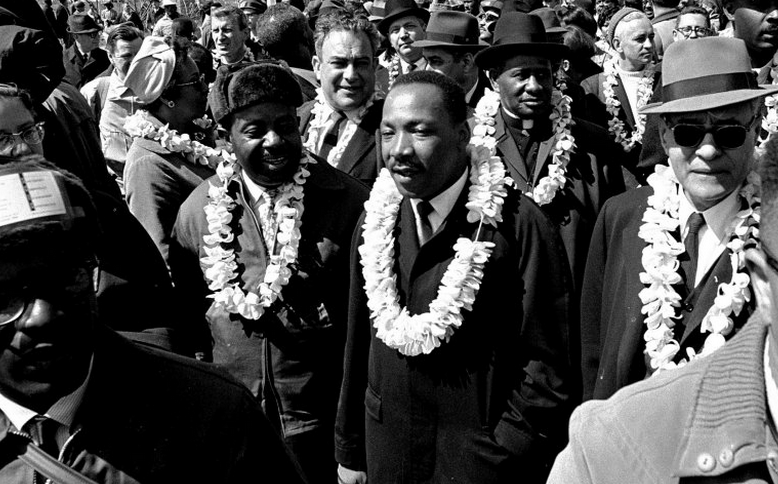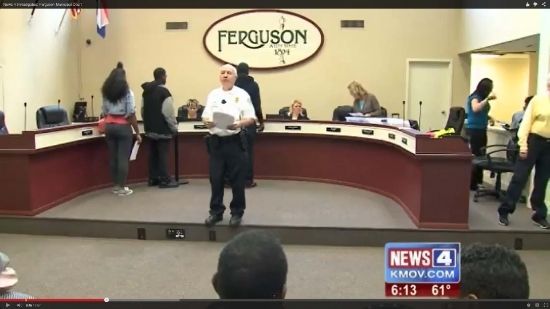Video of President Obama’s Speech at the Georgia Institute of Technology in Atlanta, Georgia is below.
1:51 P.M. EDT
THE PRESIDENT: Hello, Atlanta! Hello, Yellow Jackets! (Applause.) This is a pretty good-looking crowd here! (Applause.)
AUDIENCE MEMBER: Thank you!
THE PRESIDENT: He says thank you. (Laughter.) I wasn’t directing it specifically at you, but you do look pretty good — what do you think? (Laughter.) I mean, I may not be the gauge — you should ask some of the ladies here. (Laughter.)
Everybody have a seat who has got a chair. If you don’t have a chair, don’t sit down. (Laughter.) Now, I understand George P. Burdell was supposed to introduce me today. (Laughter and applause.) But nobody could find him. (Applause.)
So I want to thank Tiffany for stepping in. What she did not mention is that her letter to me was not just to express her concern about student loans, she said — in her letter she said, it was also to procrastinate from doing her Thermodynamics homework. (Laughter and applause.) That’s a true story. That is true. That’s okay. (Laughter.) I procrastinate sometimes. (Laughter.) As long as you got it done, Tiffany. Where is Tiffany? Did you get it done?
TIFFANY: I got it done!
THE PRESIDENT: Okay. (Laughter and applause.)
Let’s give it up for Buzz and the Georgia Tech Band for getting us fired up. (Applause.) Also give it up for Governor Nathan Deal, who is here. (Applause.) Congressmen Hank Johnson and David Scott. (Applause.) Atlanta Mayor Kasim Reed. (Applause.) And the President of this great institution, Georgia Tech, Bud Peterson. (Applause.) That’s good. You’ve got a high approval rating. (Laughter.) You do. Absolutely.
We also have a special guest with us — this is a proud Georgia Tech alum, who just happens also to be the Vice Chairman of the Joint Chiefs of Staff, Admiral Sandy Winnefeld is here. Where’s Sandy? There he is. (Applause.) Before he was the Vice Chairman of the Joint Chiefs of Staff, he was a Navy fighter pilot, which is cooler. Now he just goes to meetings. (Laughter.) What’s up with that? I told him he’s got to get back on a plane.
It is great to be at one of the finest technical institutes in the world. (Applause.) One of the finest in the world. I mean, you’ve got to be if the Ramblin’ Wreck is still running after all these years. (Applause.) That’s a Georgia Tech reference that some of you may not know. (Laughter.) I also know that Georgia Tech is terrific because we’ve actually worked with you on several fronts — from promoting advanced manufacturing to unlocking the mysteries of the brain to helping more students become entrepreneurs. (Applause.)
And the reason I wanted to come here today is because I believe that higher education, as you believe, is one of the best investments that anybody can make in their future. And it’s also one of the best investments you can make in our country’s future. So I’m here to say thank you and to tell you I’m proud of you, because I know that it’s not always easy to do what you’re doing. It takes perseverance. A lot of late nights in the library and the lab, and you’re wrapping your minds around complex formulas and concepts that, frankly, I don’t understand. (Laughter.) But I know they’re complex. (Laughter.) And some of you are holding jobs down at the same time, which makes it even harder.
But as frustrating as it may be, and Tiffany expressed some frustrations on occasion, it is worth it. Higher education has never been more important. And the message I want to deliver today, not just to you but to the entire country, is the entire nation has to treat it as a priority.
Right now, our economy is growing steadily. It’s creating new jobs. You’re going to be going into a job market that’s much better than the one that existed when I came into office six years ago. (Applause.) After the worst economic crisis of our lifetimes, over the past five years, our businesses have now created 12 million new jobs. Unemployment continues to come down, and obviously that’s good news for those of you who are graduating soon. (Applause.) Yes, that’s right, you want a job. (Laughter.) Your parents also want you to have a job. They don’t want you on the couch. (Laughter.)
But I didn’t run for President just to get us back to where we were — I ran for President to get us to where we need to go. (Applause.) And where we need to go is a growing middle class with rising incomes and opportunities for everybody who’s willing to work hard. An America where no matter who you are, what you look like, where you came from, how you started, who you love, what faith you’re a part of, you can make it in this country if you try. (Applause.) That’s what America is all about. (Applause.)
And today, a college degree is the surest ticket to the middle class and beyond. It’s the key to getting a good job that pays a good income. And it offers a measure of security, because a college degree tells employers that you don’t just have one set of skills; that you’ve got the continuous capacity to learn new skills, which is going to be particularly important for your generation because the economy is going to churn and change in ways that none of us can even anticipate.
Before we came out here, I was talking to a group, including Sandy Winnefeld, and your Mayor Kasim Reed, Tyler Perry buddies — (laughter) — he wasn’t in Madea, he was Tyler. (Laughter.) And we were talking about how rapidly the technology is transforming everything we understand, everything we know –everything from drones, to artificial intelligence, to driver-less cars. And we don’t yet know how all that is going to shape the nation that you inherit, but we know it’s going to shape it dramatically. And in order for you to be able to be successful, you’re going to have to adapt, continuously. The days where you work at one place for 30, 40 years, those days are over.
And so the skillsets you are getting now are going to keep you in that job market. You’re going to have multiple jobs before you’re 30. Some of you will have multiple careers. And we live in a 21st-century economy, where your most valuable asset is your imagination, your knowledge, your ability to analyze tough problems. And that’s not just true for individual Americans, it’s true for our whole country.
The ability to compete in the global economy depends on us having the world’s most skilled, best-educated workforce. And by the way, let me just add, it’s also going to be critical for us to maintain our democracy in a complex, diverse society. (Applause.)
Understandably, when I come to college campuses, there’s a lot of just bread and butter, nuts and bolts, how does this translate into jobs, careers. But part of what has made America the exceptional nation that it is, is our diversity and our ability to draw from every corner of the world — all the talent, all the ideas — and create this amazing stew. And the more complex this society, the tougher that becomes.
And so to have all of you possess the ability to listen and to learn from people who aren’t like you — that’s also what you’re learning here, and that’s going to make you more effective to every employer out there. (Applause.) But it’s also — it’s going to make you better citizens, and it’s going to make our democracy function better.
But back to the jobs thing. (Laughter.) Jobs and businesses will go wherever the best workers are. And I don’t want them to have to look any further than the United States of America. I want businesses investing here. I want Americans getting those new jobs. That’s how we’re going to lead the world in this century just like we did in the 20th century. (Applause.)
So here’s the challenge: Higher education has never been more important, but it’s also never been more expensive. The average undergrad who borrows money to pay for college graduates with about $28,000 in student loan debt. That’s just the average; some students end up with a lot more than that — you know who you are. (Laughter.) I’m not telling you anything you don’t know.
And let me say that it’s been established time and time again that Georgia Tech is one of the best bargains around. You are getting a great education for a great value. (Applause.) Which is one of the reasons I’m here; obviously, I wouldn’t go to a place that was a bad bargain and really expensive and no value. That would not make sense. (Laughter.)
But even here at Georgia Tech, even with the great value it is, it’s expensive. And I’m here to tell you, I’m with you. I believe that America is not a place where higher education is a privilege that is reserved for the few. America needs to be a place where higher education has to be available for every single person who’s willing to strive for it, who’s willing to work for it. (Applause.)
And I’ve said this before: I take this personally. My grandfather had a chance to go to college because this country decided that when veterans returned home from World War II, they should be able to go to college. And this government stepped up.
My mother was able to raise two kids by herself, in part because she got grants that helped pay for her education. And I am only standing here — and Michelle is only where she is today — because of scholarships and student loans and work study. We did not come from families of means. (Applause.) We didn’t come from families of means, but we knew that if we worked hard, there was help out there to make sure we got a great education. That’s what this country gave to us.
And that’s why this has been such a priority for me. I take it personally because when I look out at all of you, I see myself. And I remember the fact that it took me 10 years to pay off all our student loans. We were paying more for our student loans than our mortgage, even after Malia and Sasha were born. We were supposed to be saving for their college education; we were still paying off ours.
And that’s why we’ve acted again and again to make college more affordable. Five years ago this month, we enacted the largest reforms to the student loan program in history. (Applause.) We cut out the big banks that were taking taxpayer dollars and serving as middlemen in the student loan game, and we said, well, let’s just give the money directly to the students like you. (Applause.)
So as a result of that change, we saved billions of dollars. We were to expand tax credits and Pell grants, and put college within reach for millions more middle-class and low-income students across the country. Then we fought to keep interest rates on student rates — interest rates on student loans low and capped how high those rates can rise. And as a result, the typical undergrad is saving about $1,500. We also acted to let millions of graduates cap their loan payments at 10 percent of their incomes, so they don’t have to choose between paying the rent and paying back their debt. (Applause.)
And by the way, everybody here, if you don’t already know about the income-based repayment program, you need to learn about it because it’s still under-utilized. But it gives you an opportunity to make sure that if you make a career choice that doesn’t make tons of money, you’re still able to do the responsible thing and pay back your loans at a pace that also allows you to build a family and buy a home and live your lives.
And graduates who go into lower-paying fields like social work or teaching, they’re not going to pay a price for following their dreams because they’re going to have even better options in terms of how they repay their loans. (Applause.) So that’s what we did on the student loan side.
Meanwhile, we’re working to hold down the cost of a college education. So we’re partnering with schools like Georgia Tech on innovative ways to increase value — like your online master’s program in computer science — (applause) — which costs just a fraction of the price of an in-classroom program.
And I sent Congress a bold new plan to bring down the cost of community college to zero. (Applause.) Because not everybody may be prepared right away to start a four-year university. But also, in some cases, even if they could, they may choose to get two years of college free, and then be able to transfer the credits for their four-year education. We want to make community college, at minimum, just as free and universal as high school is today. That should be our new baseline. We want to get out ahead of the curve in terms of where we need to go. (Applause.)
Earlier today, I took a new action to make it easier for students to pay for college and pay off their loans. We’re creating a way for you to ask questions about your loans, file a complaint, cut through the bureaucracy, get a faster response. That’s not just from the government, that’s also from the contractors who sometimes service your loans. We’re going to require that the businesses that service your loans provide clear information about how much you owe, what your options are for repaying it, and if you’re falling behind, help you get back in good standing with reasonable fees on a reasonable timeline. And if you’re paying stuff off, you should be paying off the high-interest loans first, not the low-interest ones. We’re going to take a hard look at whether we need new laws to strengthen protections for all borrowers, wherever you get your loans from.
So we’re trying to tackle this problem from every angle. There’s no silver bullet. But we’re trying to make sure that across the board, more and more young people can afford to go to college, and then afterwards, aren’t so burdened with debt that you can’t do anything else. We want to make this experience more affordable because you’re not just investing in yourselves, you’re investing in your nation. (Applause.)
But here’s the thing: We’ve got more to do, all of us — universities, students, parents, financial institutions and, yes, the government, to make sure that you’re not saddled with debt before you even get started in life. That’s something that’s in all of our interests.
Now, my friends, the Republicans in Congress, are planning to unveil their budget soon. I’m hoping they have something to offer that will help hardworking young people. So far, the education bill that they put forward a couple weeks ago is not a good template, it’s not a good start. I’m hoping it will improve because right now, the way it’s structured, it would let states and cities shuffle education dollars into things like sports stadiums or tax cuts for the wealthy instead of schools. And it would allow states to make even deeper cuts into school districts that need the most support, send even more money to the most well-off school districts. We’d invest less per child by the end of the decade than we do now. So it’s the wrong approach. We’ve got to be working to make sure every child gets a quality education, every student can afford college. (Applause.)
And so we’re going to be reaching out to them, trying to get them to see this is a good investment in our economy, it’s a good investment in our national security. The way that you keep America safe, one of the best, most important ways is to make sure we’ve got a strong economy with a strong workforce. And all of us have a role to play in making that happen.
So in order to spur more of a conversation to get more folks engaged, we’re going to try something new to help do this. It’s not a fancy new program. It’s not — it doesn’t have a complicated acronym. It doesn’t involve new spending or bureaucracy. It’s just a simple organizing principle that I want all of us to sign onto, a declaration of values — what I’m calling a Student Aid Bill of Rights.
And it says every student deserves access to a quality, affordable education. Every student should be able to access the resources to pay for college. Every borrower has the right to an affordable repayment plan. Every borrower has the right to quality customer service, reliable information, and fair treatment, even if they struggle to repay their loans.
It’s a simple set of principles that if everybody signed onto — Republicans, Democrats, state legislators, university presidents, members of Congress — it can focus our attention, all these different things that we’re doing, into one simple, basic idea, which is, make sure that when you’re doing the right thing, that your society has got your back and is looking out for you. (Applause.)
So based on this principle, we’re going to make sure universities are using technology to help students learn at lower costs. We’re going to make sure that loan servicers can find better ways to help borrowers keep up with monthly payments that they can afford. We as a country can do more to invest in Pell grants and community college to make sure quality education is affordable for everybody.
So we’re going to just keep on moving on every front. And we want everybody who agrees with these principles to sit down and work with us, and figure out how they can make these student rights real. And you’ve got a part to play as well.
We had the great honor of being at Selma this past weekend for the 50th anniversary of the March from Selma. (Applause.) And one of the main points I think that all of us made was change doesn’t happen by itself; it happens because people get organized and mobilized and focused, and they push, and sometimes they disrupt and they make folks uncomfortable, and they ask questions about why is it this way instead of that way.
And I want us to think about access to higher education and affordability of higher education in that same way. I want us to all organize together — not on a partisan basis, it’s not organizing around an election, it’s organizing around a simple idea that everybody should be able to get behind.
And you’re going to have to play the part. Because what we also made the point of this past weekend is young people typically lead the pack with new ideas, with new initiatives, with new focus, with a new vision. (Applause.)
So if you agree with the basic values that I outlined, if you believe in a Student Aid Bill of Rights that will help more Americans pay for a quality education, then sign your name to this declaration.
You can go to a website, because you guys like tech stuff. (Laughter.) You go to: WhiteHouse.gov/CollegeOpportunity — WhiteHouse.gov/CollegeOpportunity. Tell your families and classmates and professors to do it. I’m going to ask members of Congress, and lenders, and as many business leaders as I can find to sign up.
We’re going to mobilize a coalition around this country to get this process moving, because there are a lot of good ideas right now but they’re stalled, or they’re happening piecemeal, or they’re happening in one university, or they’re happening in one state, and they have to happen everywhere. And we’ve got to mobilize the entire nation to make that happen. And it’s going to start with students themselves, because if you aren’t asking for something different, if you aren’t asking for help, if you’re not getting mobilized, then folks aren’t going to help you, and then you’ll just be complaining — especially once you graduate and you start having to write those checks. (Laughter.)
So don’t stop engaging in this issue, even after you graduate, because you’ll be still impacted by it. And in the meantime, you’ve got to study hard, and work hard, and have fun. Make some new discoveries. Inspire us. Lead us. Be the Americans that we need you to be.
Every American should have the right to go as far as their talents and hard work will take them. That is what college is all about. That is what America is all about. And you embody that basic notion. You are that talent. You are an embodiment of what we hope for: A country that says that everybody, rich, poor, black, white, Hispanic, Asian, gay, straight, man, woman, with disabilities, without — no matter who you are or where you come from, not only can you succeed but you can help everybody else succeed. That’s the promise that helped us become the greatest nation in the world. That’s the promise that I need you working for.
Thank you, everybody. God bless you. Thank you, Georgia.
END
2:18 P.M. EDT















